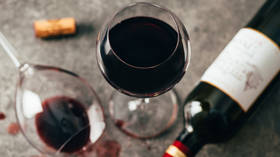Red wine losing appeal in Russia

Russian wine lovers are switching from red wine to white and rosé, Maxim Protasov, the head of Roskachestvo, the food quality regulator, told RIA Novosti news agency in an interview published on Saturday.
According to Protasov, the trend is strong with regard to both domestic and imported wines.
“The trend that needs to be mentioned is a certain redistribution of demand from red wines towards white and rosé: 45% of Russian consumers note that they prefer white wines, and this is confirmed by the dynamics of imports,” he stated, adding that while in 2017, more than half of Russian wine imports constituted red wine, this year it makes up only 38%. Protasov said the trend is not surprising, as most Russian wine buyers are women and “they like the white and rosé more.”
In general, according to Protasov, Russians have started to buy more domestic wines. He noted that the product range and output volumes of Russian wineries have been growing significantly over the past several years, especially with regard to small and medium-sized enterprises.
A survey conducted by NAFI Analytical Center on behalf of the Russian Agricultural Bank, Rosselkhozbank, showed last month that up to 70% of Russians prefer domestic to imported wines in all categories from sparkling to stiff wines. Nearly half of the respondents (48%) believe that the quality of Russian wine has improved over the past year, and 27% said they plan to buy products from Russian winemakers more often.
Amid the Ukraine-related sanctions last year, the EU banned wine exports to Russia that exceed €300 ($315) per bottle, which led to a significant drop in deliveries. Recent import data shows that while in 2022 Italy and Spain were Russia’s top-two wine suppliers, accounting for more than half of all imports, this year they were replaced by Lithuania, Georgia, and Latvia. Industry experts, however, note that given the lack of domestic wine production in the Baltic states, and due to sanctions, Lithuania and Latvia are likely reselling wine bought from their EU peers to Russia.
For more stories on economy & finance visit RT's business section












